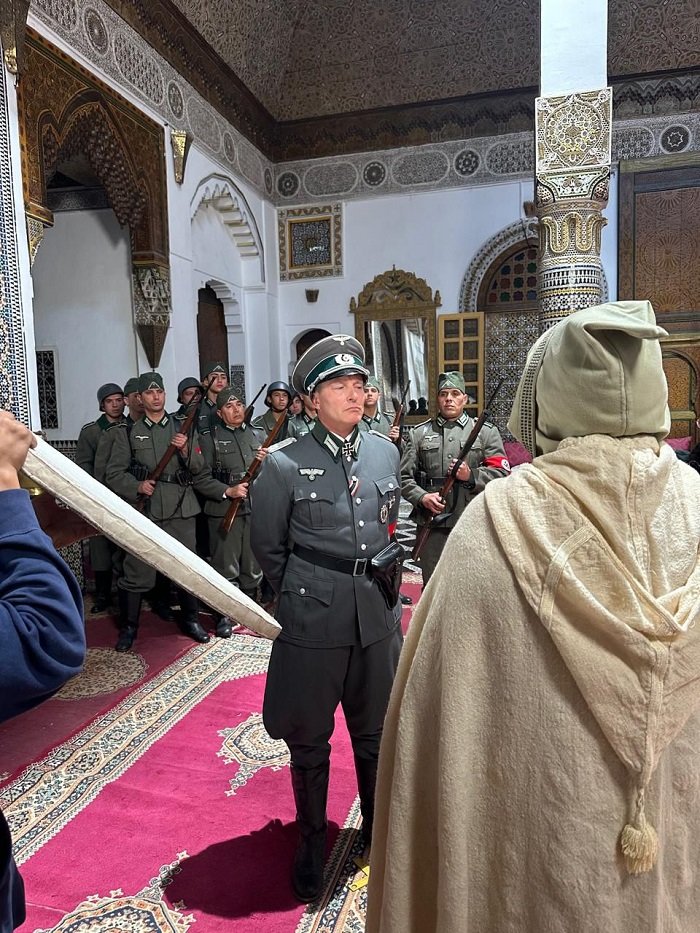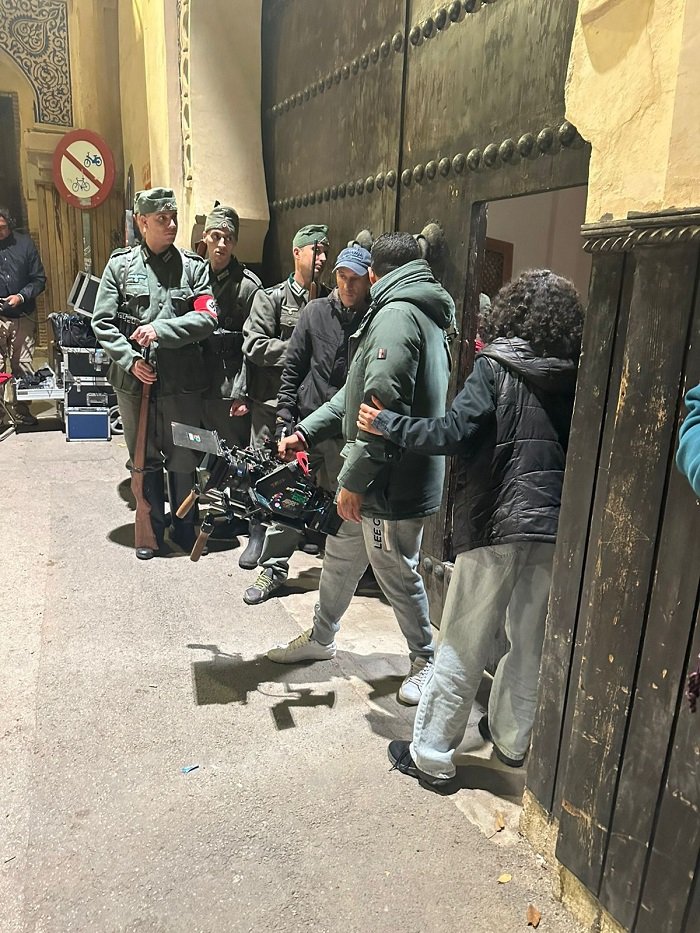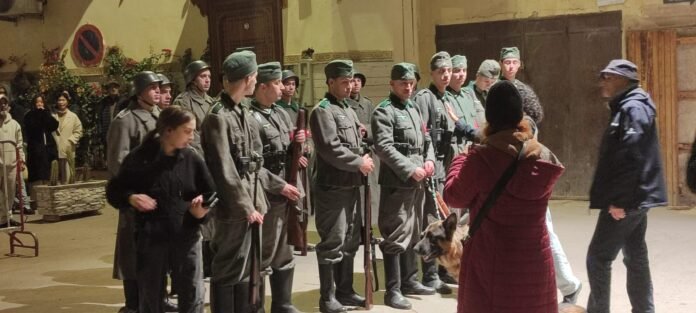“Laylat Al-Qadr” is not simply a historical film that recreates the aesthetics of the 1940s or the architecture of Nazi-occupied Paris. It is an attempt to retrieve a neglected chapter of Moroccan—and broader Arab-Muslim—memory during World War II: the discreet yet crucial role played by the Paris Grand Mosque in protecting individuals fleeing Nazi persecution.
The film does not confine itself to representation; it interrogates.
It asks what protection means in a climate ruled by fear, how the sacred operates when danger infiltrates places of worship, and what remains of human morality when survival becomes a negotiation with power.
Between Morocco and Paris: a dual geography that reconstructs a turbulent era
Filming between Morocco and Paris is both an artistic and symbolic gesture. Moroccan cities, with their medinas and traditional architecture, offer a visual texture capable of restoring the atmosphere of the 1940s. Paris, for its part, is the historical epicenter of occupation, and the authentic locus where the mosque served—at a precise moment—as an understated refuge.

This dual spatiality invites deeper questions:
Has colonial memory allowed room for non-European actors to be acknowledged in the narrative of World War II? And can Moroccan cinema today articulate an alternative narrative capable of challenging the dominant Western historiography?
Adam Ben Mohammed: a man of faith confronting the weight of History
Adam Ben Mohammed, the protagonist, is not a stylized hero. He is a scholar and caretaker of a religious space suddenly transformed into a zone of negotiation with the occupying force.
His intricate relationship with the German officer overseeing the mosque becomes a lens through which the film examines ethical tension: how can a man of faith retain integrity when every gesture is monitored and every word can become a threat?
The film elevates this personal struggle into a universal question:
What does it mean to protect another person when such protection may itself become incriminating?

Production as a living act of memory
Comments from producer Ayoub El Mahjoub and production director Lahcen Farah reflect a shared understanding: historical cinema is not decorative work, but a form of interpretation.
Attention to costumes, accessories, and body language is not mere detail—it is an artistic responsibility meant to restore to the past its emotional authenticity.
The film thus seeks not only to depict history but to feel it, to transmit its fragility and its human contradictions.
A human-centered reading of war
“Laylat Al-Qadr” intentionally avoids a heavy political lens. War appears instead as a moral battleground where faith, ethics, and survival intersect.
By highlighting a little-known episode, the film also revisits the relationship between Islam and the Other, presenting a model of cross-cultural solidarity often overshadowed in official historical narratives.
A Moroccan film rewriting its place in global history
In the Moroccan intellectual context, the film opens three parallel reflections:
-
Culturally: it restores Morocco’s active, though understated, role in the global history of World War II.
-
Socially: it questions cinema’s ability to revive erased memories and reshape social consciousness.
-
Politically: it reconsiders the historical depth of religious institutions, far from contemporary stereotypes, highlighting their humanistic contributions during moments of extreme danger.


